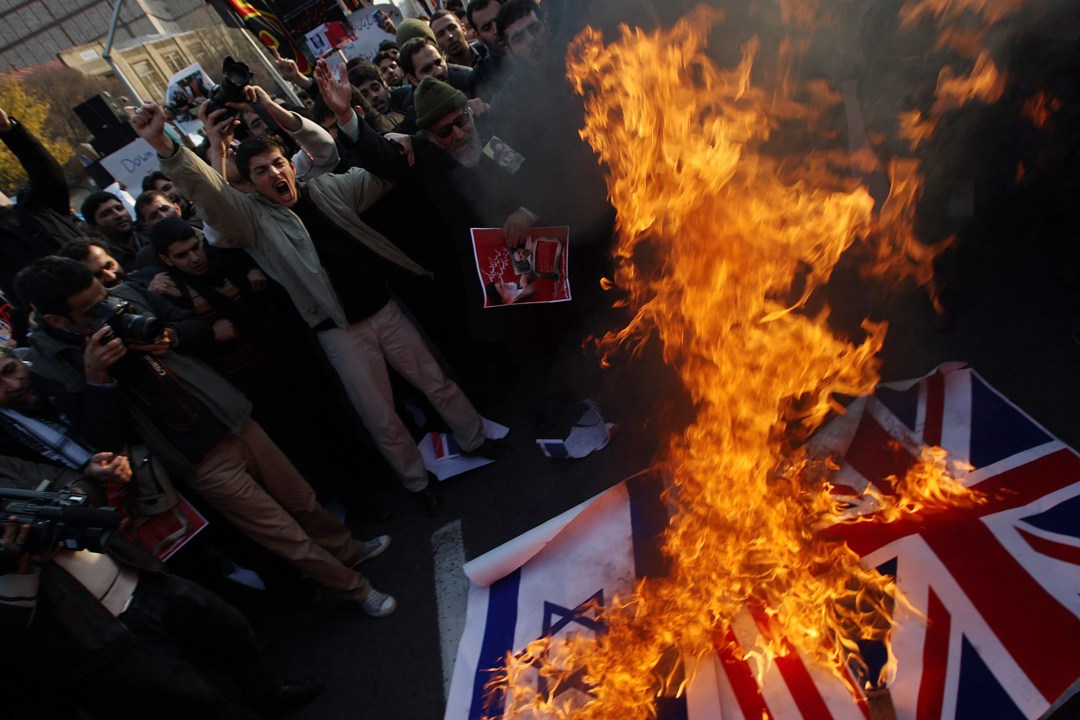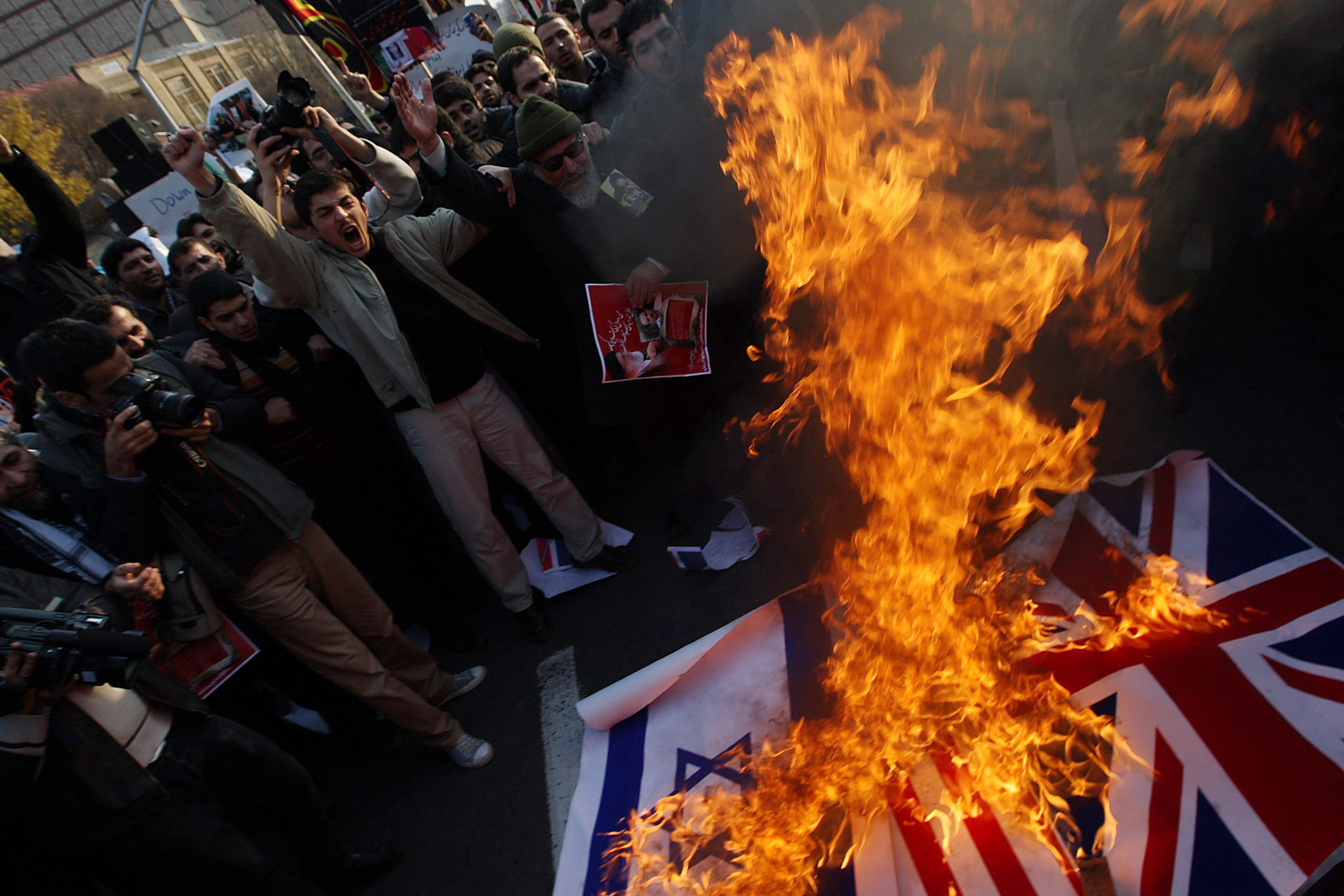 The pressure is piling up on Iran – from below, as people demand greater freedoms;
from the region, where Iran is about to lose its one ally, Syria, to a popular revolt; and from the international community, which is tightening the economic sanctions in response to Tehran’s
illegal nuclear programme.
The pressure is piling up on Iran – from below, as people demand greater freedoms;
from the region, where Iran is about to lose its one ally, Syria, to a popular revolt; and from the international community, which is tightening the economic sanctions in response to Tehran’s
illegal nuclear programme.
So Iran is hitting out the only way it knows how – through the use of state-sanctioned and illegal violence. They hope to divert attention from the country’s problems and internecine struggles, reheating old tropes about Britain as the ‘Little Satan’ and maintaining the decades-old decolonialisation rhetoric that all the problems of the region can be explained by outside interference.
This time Britain was the target, as a government-controlled mob ransacked the compound in which the British embassy sits. The Iranian state would have the outside world believe that – while it is capable of preventing the Green Movement from gathering, harassing pro-democracy protesters and imprisoning activists – it was powerless to stop the ransacking of the British embassy. As Foreign Secretary William Hague put it in a calm and purposeful statement to the House, such a notion is ‘fanciful’.
Even more fanciful is the idea that anyone but a hardcore of paid-up government vandals will believe the regime’s rhetoric. Even as thugs were ransacking the British embassy many inside Iran’s government must have breathed a sigh, knowing that such anachronistic antics are unlikely to act as more than a palliative; Iran’s deep-seated socio-economic problems, compounded by the regime’s reckless pursuit of nuclear technology, as well as the struggles inside the political elite, will not disappear and people are unlikely to be persuaded that Britain is to blame for every Iranian ill.
As the region slowly moves down the long and bumpy road towards democracy the Iranian regime will become ever-more isolated and will likely adopt more of the tactics seen on Tuesday in the attack on the British embassy. Such behaviour should be met by a unified and strong response – including the downgrading not just of UK-Iranian ties but also those between Iran and other EU states.
In time, Iranians will look back at the behaviour of Tuesday, much as Poles and Tunisians now look back at their own dictatorial history, with embarrassment and shame. Until then, the West must be clear that it continues to support the country’s liberalisation and will resist its nuclearisation.







Comments